NASA division proposing program to send scientists to ISS
Thursday, 14 July 2022 20:45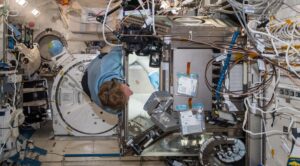
A NASA science division is seeking funding for a program that could fly scientists to the International Space Station on private missions to conduct research that could then be handed off to NASA astronauts.
A common ground system for military satellites is proving to be harder than envisioned
Thursday, 14 July 2022 20:43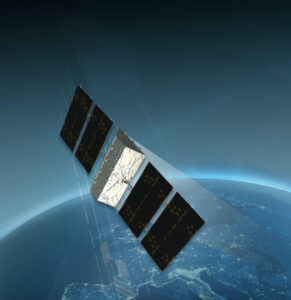
Space Force satellite operators want to move away from having different ground systems for each military constellation
The post A common ground system for military satellites is proving to be harder than envisioned appeared first on SpaceNews.
Georgia approves Starlink services in Eastern Europe
Thursday, 14 July 2022 20:38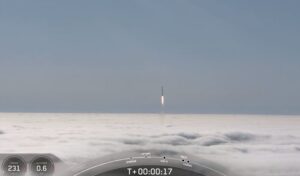
Georgia became the latest country July 14 to approve SpaceX’s Starlink broadband constellation.
The post Georgia approves Starlink services in Eastern Europe appeared first on SpaceNews.
GeoOptics, PlanetIQ and Spire to supply NOAA with space weather data
Thursday, 14 July 2022 20:00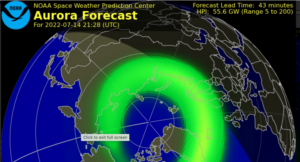
The National Oceanic and Atmospheric Administration awarded contracts to GeoOptics, PlanetIQ and Spire Global to provide space weather data.
The post GeoOptics, PlanetIQ and Spire to supply NOAA with space weather data appeared first on SpaceNews.
National Reconnaissance Office seeks proposals from commercial providers of RF space imagery
Thursday, 14 July 2022 17:59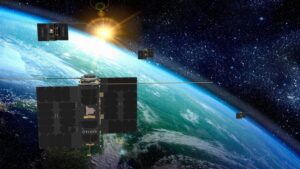
The National Reconnaissance Office has released a request for proposals from commercial providers of space-based radio frequency (RF) imagery.
The post National Reconnaissance Office seeks proposals from commercial providers of RF space imagery appeared first on SpaceNews.
Scientist reviews the key technologies for space-based situational awareness
Thursday, 14 July 2022 16:54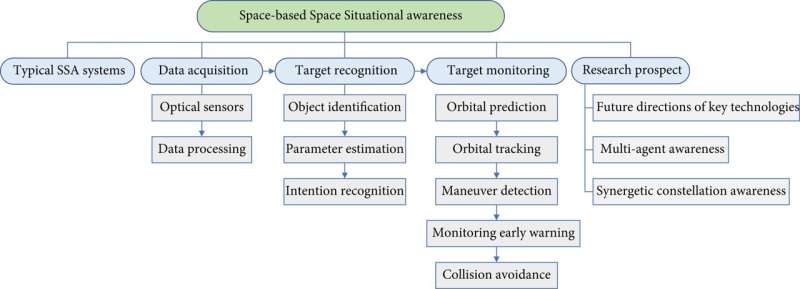
Since the launch of the first man-made earth satellite, the number of space objects has been rapidly increasing. According to the authoritative statistics from NASA, over 6,400 orbiting spacecraft still existed until early 2021. Furthermore, the total number of rocket debris above 10 cm has exceeded 16,000. The space environment has become highly congested due to the increasing space debris, seriously threatening the safety of orbiting spacecraft.
Space-based situational awareness, as a comprehensive capability of threat knowledge, analysis, and decision-making, is of significance to ensure space security and maintain normal order. Various space situational awareness systems have been designed and launched. Data acquisition, target recognition, and monitoring constituting key technologies make major contributions, and various advanced algorithms are explored as technical supports.
However, comprehensive reviews of these technologies and specific algorithms rarely emerge. This disadvantages the future development of space situational awareness. In a review paper recently published in Space: Science & Technology, Shuang Li from College of Astronautics, Nanjing University of Aeronautics and Astronautics, reviewed and analyzed research advancements in key technologies for space situational awareness, indicated the future directions of the key technologies, and emphasized the research prospects of multiagent and synergetic constellation technologies for future situational awareness, aiming to provide references for space-based situational awareness to realize space sustainability.
ESA's Swarm dodges collision during climb to escape sun's wrath
Thursday, 14 July 2022 16:45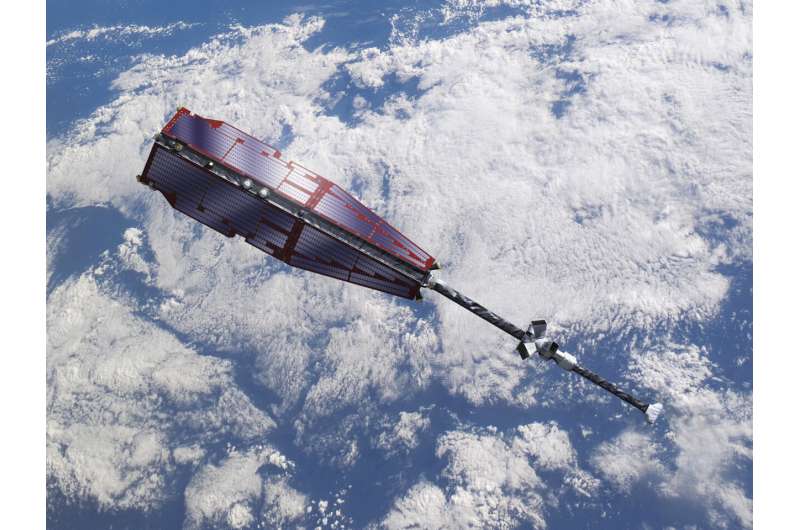
A swarm? Of bugs?
Not quite—Swarm is ESA's mission to unravel the mysteries of Earth's magnetic field. It's made up of three satellites, A, B and C—affectionately known as Alpha, Bravo and Charlie.
What happened?
A small piece of human-made rubbish circling our planet—known as space debris—was detected hurtling towards Alpha at 16:00 CEST, on 30 June. A potential collision was predicted just eight hours later, shortly after midnight. The risk of impact was high enough that Alpha needed to get out of the way—fast.
There's rubbish in space?
A lot of it. Old satellites, rocket parts and small pieces of debris left over from previous collisions and messy breakups. Each little piece can cause serious damage to a satellite, and larger ones can destroy a satellite and create large amount of new debris.
Was this the first time this has happened?
That day? Maybe. Ever? No way. Each one of the ESA's satellites has to perform on average two evasive maneuvers every year—and that's not including all the alerts they get that don't end up needing evasive action.
Webb begins hunt for the first stars and habitable worlds
Thursday, 14 July 2022 16:29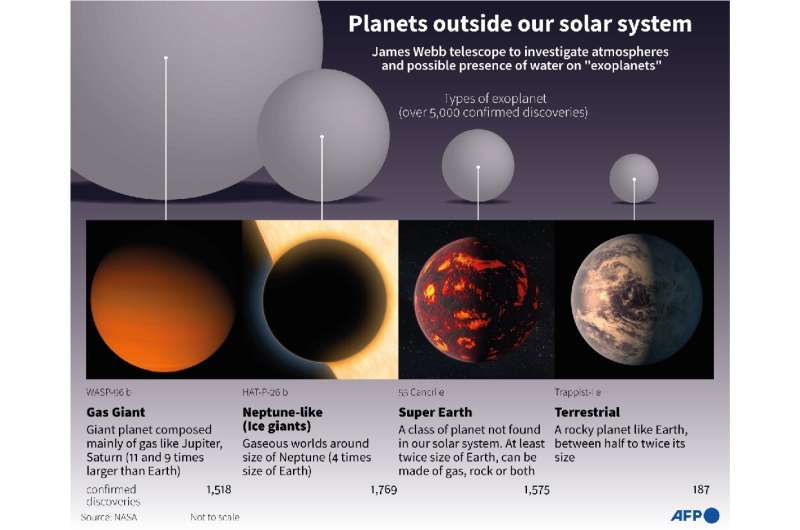
The first stunning images from the James Webb Space Telescope were revealed this week, but its journey of cosmic discovery has only just begun.
Here is a look at two early projects that will take advantage of the orbiting observatory's powerful instruments.
The first stars and galaxies
One of the great promises of the telescope is its ability to study the earliest phase of cosmic history, shortly after the Big Bang 13.8 billion years ago.
The more distant objects are from us, the longer it takes for their light to reach us, and so to gaze back into the distant universe is to look back in the deep past.
The first CERN-driven satellite successfully launched
Thursday, 14 July 2022 16:03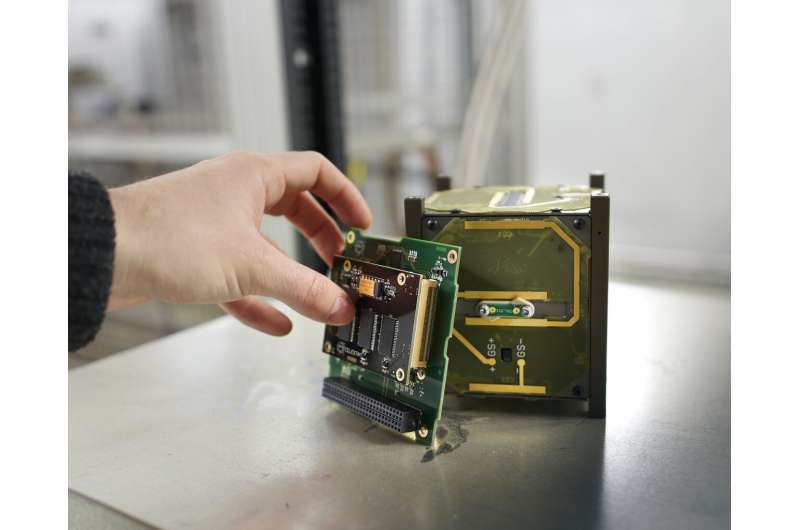
CELESTA, the first CERN-driven satellite, successfully entered orbit during the maiden flight of Europe's Vega-C launch vehicle. Launched by the European Space Agency from the French Guiana Space Center (CSG) at 13.13 UTC on 13 July 2022, the satellite deployed smoothly and transmitted its first signals in the afternoon.
Weighing one kilogram and measuring 10 centimeters on each of its sides, CELESTA (CERN latchup and radmon experiment student satellite) is a 1U CubeSat designed to study the effects of cosmic radiation on electronics. The satellite carries a Space RadMon, a miniature version of a well-proven radiation monitoring device deployed in CERN's Large Hadron Collider (LHC).
China prepares for July 24 launch of second space station module
Thursday, 14 July 2022 12:15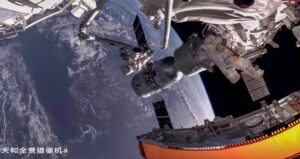
China is gearing up to send a second module to its under-construction space station with a launch from the coastal Wenchang spaceport later this month.
Galileo 2nd Generation takes 11 leaps forward
Thursday, 14 July 2022 11:25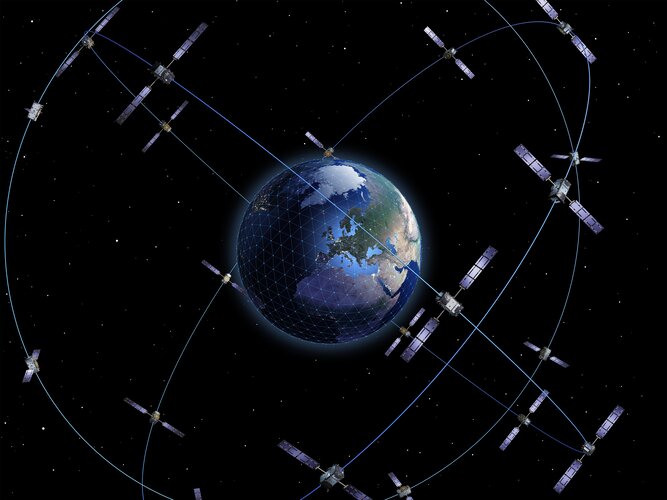
Europe’s Galileo constellation is already the world’s most precise satellite navigation system, but now Galileo Second Generation, G2, is coming. A set of 11 procurements – adding up to a maximum of up to approximately 950 million euros – are being released over the course of July by ESA, aiming for this next generation satnav system to begin operations and provide new capabilities later in this decade.
Northrop Grumman completes PDR for a 300-kilowatt class high energy laser
Thursday, 14 July 2022 11:08 Northrop Grumman Corporation (NYSE: NOC) recently completed the preliminary design review for a high-energy laser prototype that will feature an architecture scalable to more than a megawatt for the U.S. Department of Defense. The review establishes the company's technical approach for precise, low-cost, speed-of-light technology for military operations.
"This is an important step in the a
Northrop Grumman Corporation (NYSE: NOC) recently completed the preliminary design review for a high-energy laser prototype that will feature an architecture scalable to more than a megawatt for the U.S. Department of Defense. The review establishes the company's technical approach for precise, low-cost, speed-of-light technology for military operations.
"This is an important step in the a DataFarming bringing Pixxel's hyperspectral imaging to Australian farmers
Thursday, 14 July 2022 11:08 Toowoomba, Australia (SPX) Jul 10, 2022
Pixxel has announced an early adoption partnership with Australian cloud-based agritech company DataFarming. Using Pixxel's hyperspectral dataset, DataFarming will be able to monitor crop health at new speeds and greater resolutions compared to the multispectral imaging on behalf of tens of thousands of farmers.
Pixxel's constellation of hyperspectr
Toowoomba, Australia (SPX) Jul 10, 2022
Pixxel has announced an early adoption partnership with Australian cloud-based agritech company DataFarming. Using Pixxel's hyperspectral dataset, DataFarming will be able to monitor crop health at new speeds and greater resolutions compared to the multispectral imaging on behalf of tens of thousands of farmers.
Pixxel's constellation of hyperspectr Scientists find oldest Martian meteorite's original home
Thursday, 14 July 2022 11:08 Scientists announced Tuesday they had found the crater from which the oldest known Martian meteorite was originally blasted towards Earth, a discovery that could provide clues into how our own planet was formed.
The meteorite NWA 7034, nicknamed Black Beauty, has fascinated geologists since it was discovered in the Sahara Desert in 2011.
It fits easily in the hand, weighing just over 300
Scientists announced Tuesday they had found the crater from which the oldest known Martian meteorite was originally blasted towards Earth, a discovery that could provide clues into how our own planet was formed.
The meteorite NWA 7034, nicknamed Black Beauty, has fascinated geologists since it was discovered in the Sahara Desert in 2011.
It fits easily in the hand, weighing just over 300 NASA and Roscosmos nearing completion of seat barter agreement
Thursday, 14 July 2022 10:46
NASA and Roscosmos are in the final stages of completing a long-awaited agreement to allow Russian cosmonauts to fly on commercial crew vehicles and American astronauts on Soyuz spacecraft.
The post NASA and Roscosmos nearing completion of seat barter agreement appeared first on SpaceNews.

